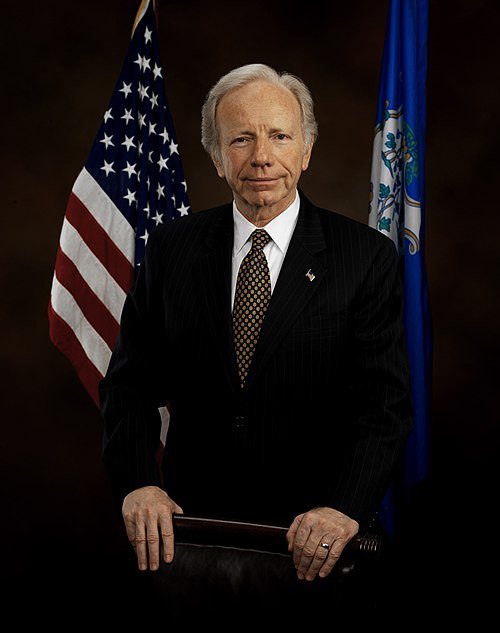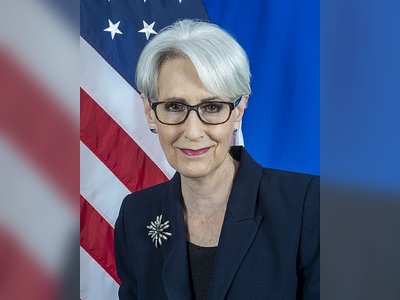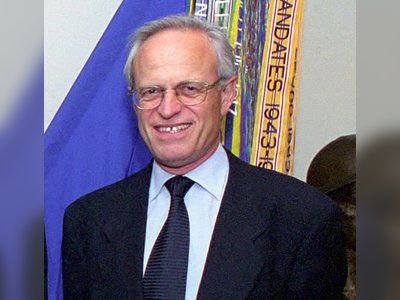מורשת גדולי האומה
בזכותם קיים
beta
Joseph Isadore "Joe" Lieberman: A Political Journey

Joseph Isadore "Joe" Lieberman was born on February 24, 1942, in Stamford, Connecticut. He would go on to become a prominent American politician, leaving a lasting impact on the nation's political landscape.
Early Life and Education
Lieberman's family background was one of migration and diversity. His father was a descendant of Polish immigrants, while his mother's family had roots in Austria. He received his education in Stamford's public schools and earned a bachelor's degree in 1964, followed by a law degree in 1967 from Yale University.
Even during his student years, Lieberman displayed an interest in politics. In 1963, he participated in the Washington march led by Martin Luther King Jr., where King delivered his famous "I Have a Dream" speech. Lieberman even traveled to Mississippi to help register African American voters.
His Political Career Takes Shape
In 1968, Lieberman led Robert Kennedy's election campaign in Connecticut's primary elections. In 1970, he was elected to the Connecticut State Senate for the first time, eventually becoming the Senate Majority Leader in 1974. In 1980, he made an unsuccessful bid for a seat in the U.S. House of Representatives due to the Republican landslide that led to Ronald Reagan's presidency.
In 1982, Lieberman was appointed Connecticut's Attorney General, where he gained recognition for his work in consumer protection and environmental advocacy.
Entering the U.S. Senate
In 1988, Lieberman was elected to the U.S. Senate for the first time, narrowly defeating Republican incumbent Lowell Weicker. However, his independent streak within the Democratic Party often put him at odds with the more liberal elements of his party. Despite this, he won re-election in 1994 by a significant margin.
In the Senate, Lieberman positioned himself as a moderate Democrat and worked towards a more centrist approach to politics. He was one of the early supporters of Bill Clinton's presidential candidacy in 1992 when Clinton was still relatively unknown, having met him during Clinton's first Senate campaign in Connecticut.
Despite his generally traditional Democratic stances on issues like abortion, gun control, and environmental protection, Lieberman was not afraid to take independent positions. For example, he supported school vouchers and demonstrated a relatively hawkish foreign policy stance, including his support for the Gulf War.
Monica Lewinsky Scandal and Public Stand
Lieberman made headlines in 1998 during the Monica Lewinsky scandal involving President Bill Clinton. Despite his close ties to Clinton, Lieberman was the first Democratic senator to publicly criticize Clinton's behavior, labeling it as "immoral" and "harmful."
Vice Presidential Bid and Beyond
In 2000, Al Gore selected Joe Lieberman as his running mate in the race for the presidency. This decision was seen as an attempt by Gore to distance himself from the Clinton-Lewinsky scandal and to appeal to religious and socially conservative voters. Lieberman became the first Orthodox Jewish senator in U.S. history to run for the position of Vice President. Ultimately, they narrowly lost the election to George W. Bush.
In 2000, Lieberman also faced re-election to the Senate and chose to run simultaneously for both positions, which drew criticism from some within the Democratic Party. Despite concerns about his dual candidacy, he won both races.
Lieberman's bid for the Democratic nomination for president in 2004 faced challenges due to his strong support for the Iraq War. His unwavering stance on the war led to a significant loss of support within the Democratic Party, and he ultimately withdrew from the race.
Senate Career and Iraq War Advocacy
Throughout his Senate career, Lieberman remained a vocal advocate for the Iraq War, even as public sentiment turned against it. He visited Iraq multiple times and continued to support President Bush's policies in the region. His alignment with the Bush administration on this issue caused friction within the Democratic Party, with many members distancing themselves from him.
In 2005, Lieberman joined the "Gang of Fourteen," a bipartisan group of senators who played a crucial role in brokering a deal on judicial nominations, preventing a complete breakdown of Senate rules on filibusters.
Election Challenge in 2006
Lieberman's strong support for the Iraq War and alignment with the Bush administration's policies led to a formidable primary challenge in the 2006 Senate race. Ned Lamont, a wealthy businessman, emerged as his primary opponent, positioning himself as a staunch anti-war candidate. The primary became a nationally watched battle, symbolizing the divide within the Democratic Party.
Lamont's strong anti-war stance resonated with the more liberal elements of the Democratic Party, leading to significant grassroots support and campaign donations. The primary race was seen as a struggle for the soul of the Democratic Party between its establishment and more progressive factions.
In the end, Lieberman lost the Democratic primary but decided to run as an independent candidate in the general election. He won the general election, becoming the first senator elected to Congress as an independent since the 1950s.
Legacy and Impact
Joe Lieberman's political journey was marked by his willingness to take independent stances within the Democratic Party, particularly on issues like the Iraq War. His career illustrates the complexities and challenges of navigating the political landscape, where principles sometimes clash with party loyalty.
Throughout his career, Lieberman remained a steadfast advocate for his beliefs, even when they put him at odds with his own party. His unique position as an Orthodox Jewish senator and his historic run as a vice-presidential candidate in 2000 made him a significant figure in American politics.
While his political career was marked by highs and lows, Joe Lieberman's commitment to his principles and his impact on American politics cannot be denied.
- ג'ו ליברמןhe.wikipedia.org




